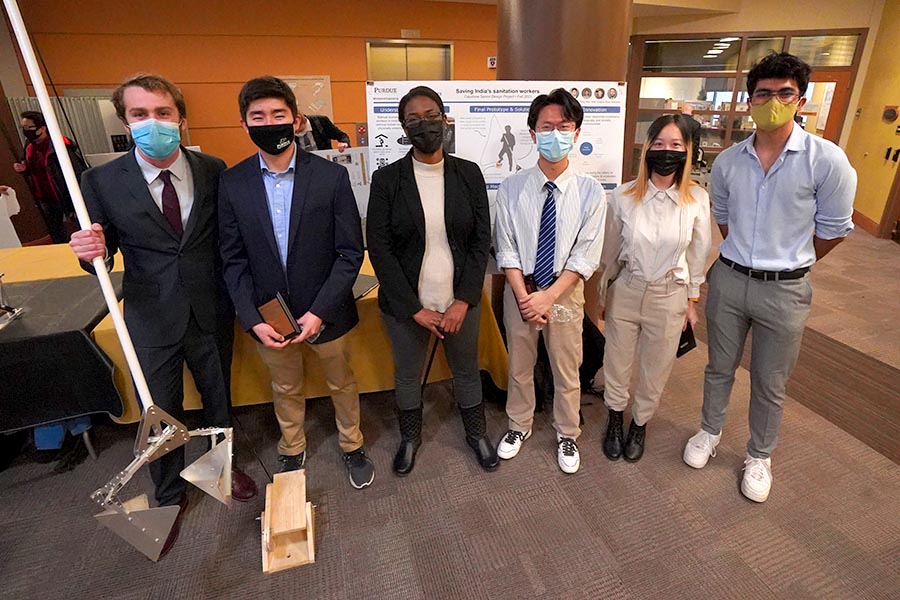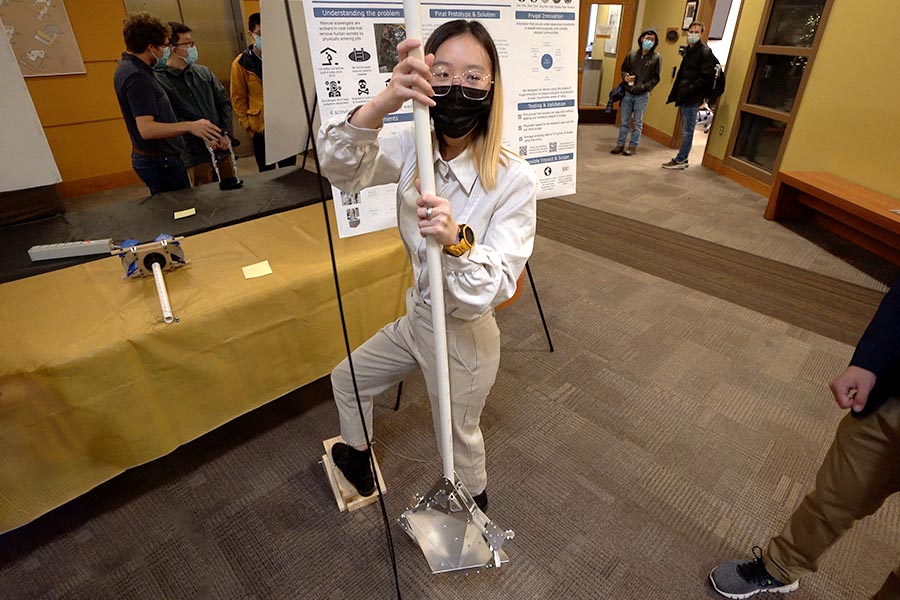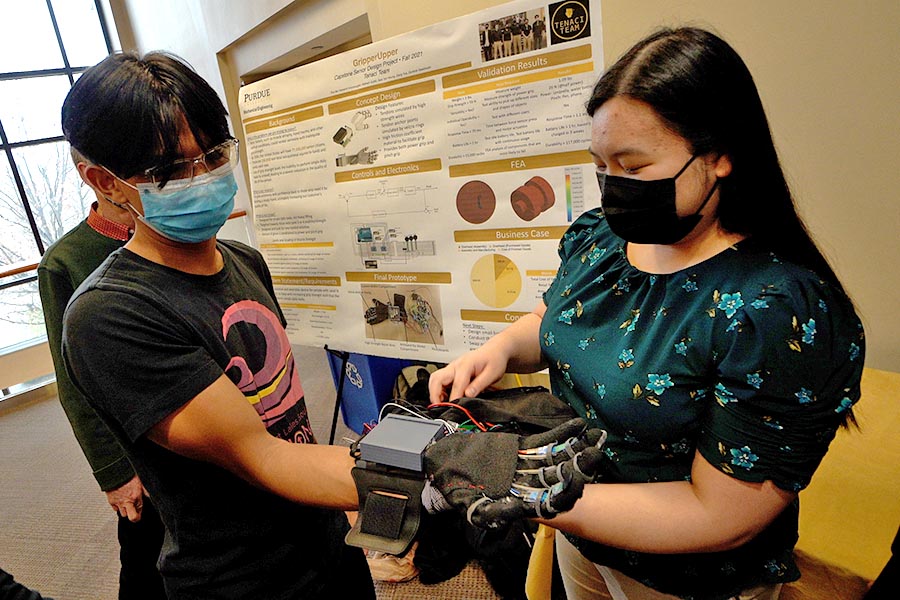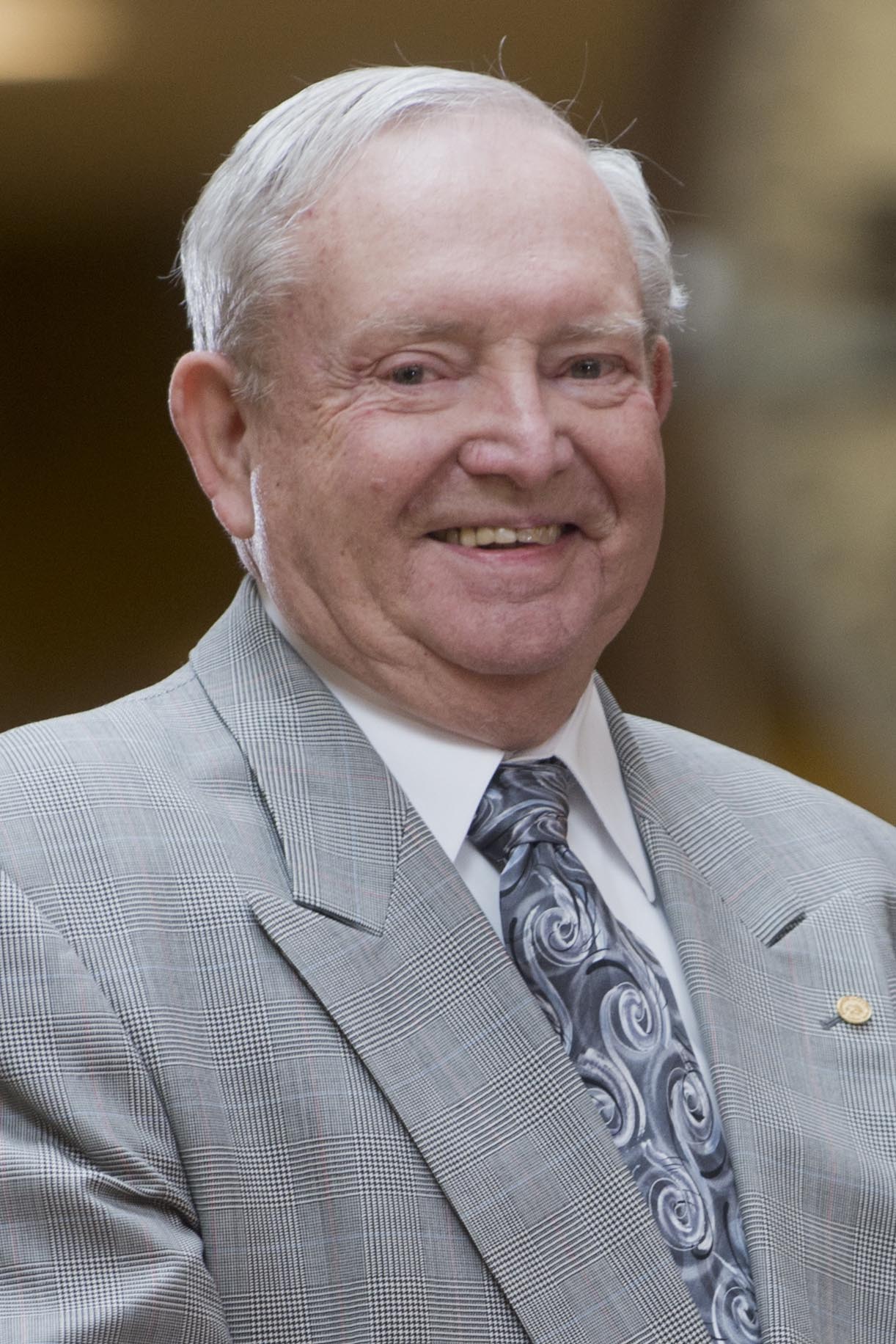Winning senior design project hopes to help India's sanitation workers

The Malott Innovation Awards are the culmination of ME463, Purdue's capstone class for seniors in Mechanical Engineering. Teams of students work closely with faculty members and industry partners to create prototype products, continually refining and improving them using the knowledge from their engineering courses over the last four years. At the end of the semester, the students present their final prototypes to a panel of Purdue ME alumni who work in various industries; this panel selects the award winning teams. Many teams also collaborated with industry, working on sponsored projects from companies like Boeing, Carrier, Daimler, and Ford.
This is the first Malott Innovation Awards held in person in more than two years, owing to the COVID-19 pandemic.
The top teams from the Fall 2021 Malott Innovation Awards are:

1st Place: Sc-Avengers, Alex Goto, Chen Chen, Qing Wen, Ritik Chopra, Ryan Redman. Manual scavengers are workers that remove human excreta from pit latrines by physically entering pits and handling excreta without any protective equipment. Scavengers are usually lower-caste Indians, forced into this job because villages are unsewered and have no access to waste removal systems; a result of governmental corruption and expensive solutions. According to Water Aid, scavenging results in 3 workers dying every five days, due to exposure to toxic fumes and contact with excreta. Our team has designed an effective and frugal device that uses a foot pedal and scoop to help scavengers remove toxic sludge in a safe and humane way. We practiced 'frugal innovation' to design for rural Indian communities that lack access to resources like money, safety, electricity, and raw materials. While the device has been designed for India, its scope expands into developing countries like Bangladesh, Sierra Leone, and Nigeria.

2nd place: Vaccool, Lin Xu, Maxim Komyshan, Soumalya Chakraborty, Julian Tessarzyk, Ankit Avlani. Our device addresses the challenge of last-mile vaccine transportation in developing countries. Specifically, the transportation from regional storage facilities to remote villages/clinics. Vaccool is worn as a backpack and greatly increases vaccine carrying capacity, compared to existing solutions. Further, our device utilizes passive cooling from ice packs (Travel Mode) and active cooling from an onboard Peltier system when plugged into a power source (Dispensing Mode). Vials are dispensed one at a time (like a Nerf gun) through a rotating door, to minimize heat transfer into the cooled device. Altgoether, this device aims to satisfy the requirements of the vaccine delivery chain with the ability to prolong cold life using active cooling. Providing more flexibility within the vaccine cold chain will increase vaccine availability, quality assurance, quantity of doses administered, and overall protection against infectious disease. It is our vision to unite the world in breaking down logistical barriers to accessible healthcare, one mile at a time.

3rd place: GripperUpper, Tina Mo, Hemanth Aroumougam, Ziang Ye, Mahesh Gubbi, Dominik Nasilowski, Saw Yan Naung. Hands are composed of a complex system of tendons, muscles, and joints, with each part working fluidly together to generate precise movements. However, this intricate system is also very vulnerable, as it's only protected by a layer of skin and fat. This means that injury and wear-and-tear are very common. Without the full functionality of their hands, individuals lose their autonomy and experience a decrease in their quality of life. The GripperUpper aims to give confidence and autonomy back to those individuals via a wearable assistive glove device that will enhance the grip strength of the user, such that they can perform daily tasks reliably. The glove will autonomously control and provide supplemental strength to the user's power and precision grip, such that they can perform a multitude of tasks.
 About the Malott Innovation Awards
About the Malott Innovation Awards
The Malott Innovation Awards are supported by an endowment created in 2007 by Thomas J. Malott (BSME '62, HDR '02), to foster an innovation culture among Purdue Mechanical Engineering students. Malott is the former president, CEO and director of Siemens Energy and Automation. His career included executive positions with Parker-Hannifin and the Ransburg Corp., as well as serving on several corporate boards. He was an inaugural member of the Purdue Foundation Development Council and was awarded the Outstanding Mechanical Engineer and Distinguished Engineering Alumnus awards in 1991 from the university.
Writer: Jared Pike, jaredpike@purdue.edu, 765-496-0374
Source: Greg Jensen, jensen23@purdue.edu, 765-496-0214
